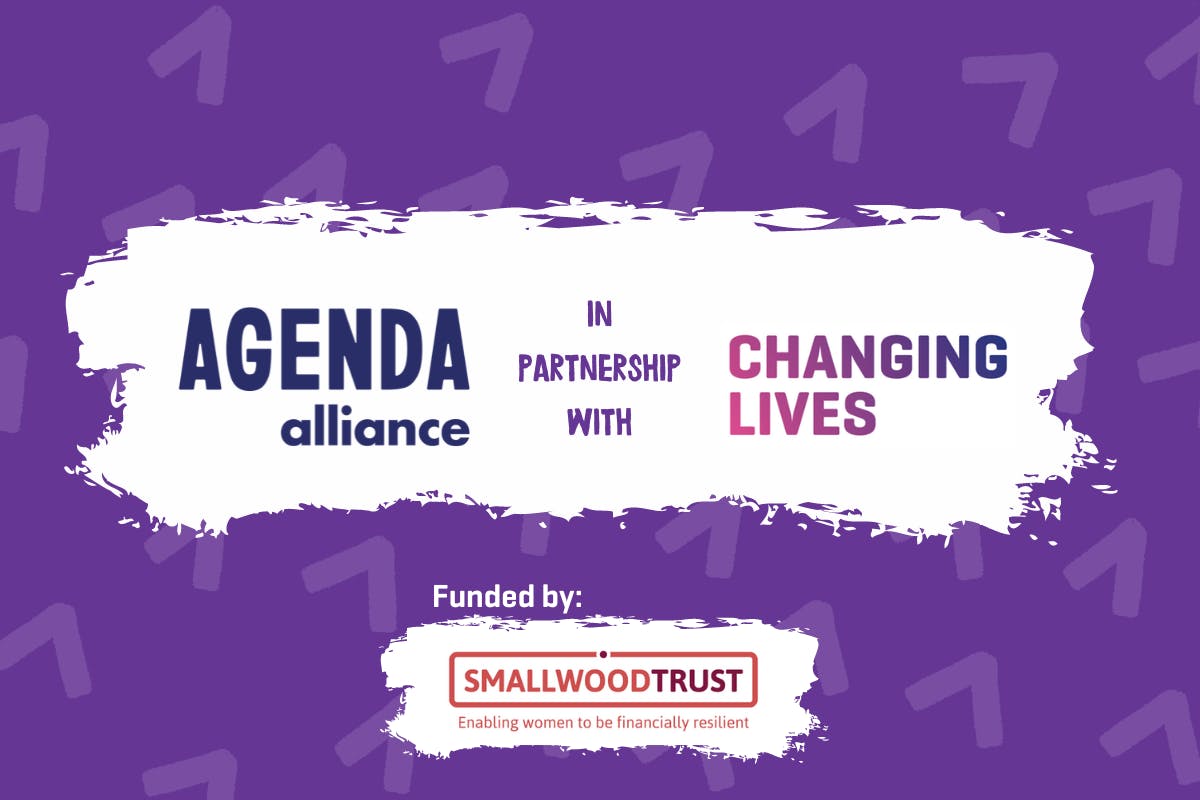A guest blog by Cynthia Otote, Communications Officer at Agenda Alliance.
Our Transforming Services for Women's Futures project, in collaboration with Agenda Alliance, explores how public services can better support women with multiple unmet needs.
As we prepare for our Parliamentary event next month to launch our final report, we spoke to the women researchers we have worked with about their experiences of co-production, thoughts on being part of the project and the changes they would like to see as a result.
What has the experience of co-production been like for you?
Nici: It's made me feel special to have my opinions taken on. It’s been great.
Haley: It's not very often that you feel like you're co-producing stuff, especially within services. You feel like other people are making the decisions for you. Sometimes you've got those little feedback forms but to co-produce all this and be involved in it has just been absolutely amazing. I think it’s so important, I think co-production is definitely something everybody should be doing across the board.
Steff: It's made me feel heard, it's made me feel equal. At most places, they make the decisions. You don't get choices or opportunities. Doing this, you've had a lot of input, you’ve been heard.
Deb: This has been one of the best things I've taken part in. At times, certain things we have discussed have been hard, but I've been well supported by the other women. I've been involved in all stages of the project. I've been able to have a voice and been heard.
What changes would you like to see come through the project?
Nici: If someone's going through a service, I think we should listen to them more. Even if it is a questionnaire form [asking] how they would like things to change, get their opinions because they're using the service at that time. And I think there should be more spaces for women to go to, women's only hubs. I know of only one.
Haley: I think there needs to be more listening to women's voices. I'd love to see more advocacy and more funding put into women's spaces.
Deb: Women's voices being listened to, more women-only spaces, women being supported and involved through all stages, more training, more job roles for people with lived experience.
Steff: There should be something done about the stigma around domestic violence, addiction and mental health. When women get their children removed, [they shouldn't] just be dropped. There should be groups, there should be aftercare. It's a massive thing taking someone's children.
"The politicians need to realise we are people. People with ambitions, hobbies. We've all got a story to tell and given the chance, a proper chance, a life to be had."
Why do you think it was important that this project was in the North East and that policymakers think about women in the North East?
Nici: Personally, I think the North East is forgotten about. [People will say,] this is being done in London or this is being done down South. We're not represented, we're not heard.
Haley: We've got one of the highest [rates of] drug and alcohol-related deaths. We're quite deprived. If we can make changes here, maybe we won't have most of our friends dying on us every week. There's two women I've heard of this week. Where does this end? Changes need to be made.
Deb: We've got one of the highest drug and alcohol death rates and we're the most deprived area due to poverty. There are massive gaps in the system to support women with unmet needs.
Steff: I think we've got the highest rate of lots of things, not just addiction. Homelessness, for example. It does seem like we're forgotten about.
What would you say if you could speak directly to a politician about these issues?
Deb: I would say, us women want to be heard and taken seriously. Enough is enough.
Nici: They need a kick up the butt. They need to do something, and they need to do it fast otherwise there are going to be so many more disadvantaged women; more suicides, homelessness, child removal. It needs acting on and it needs acting on fast.
Steff: [There needs to be] more work and education around addiction and mental health. Everyone needs re-educating.
Haley: Like I always say, this can happen to anybody. The politicians need to realise we are people. People with ambitions, hobbies. We've all got a story to tell and given the chance, a proper chance, a life to be had. This could be your sister, your daughter, granddaughter. They're so far removed from who they think they're dealing with.
"I've loved every bit of it. Having my voice heard, my story heard, and hopefully it can help future women."
What have most enjoyed about being part of the project?
Steff: Being a strong, empowered group of women and having my say. Being able to openly talk about issues without having to feel uncomfortable.
Deb: I've loved how much the other women have been great support for me.
Haley: Feeling that our voices are heard and being around some amazing, strong women. As a mum to daughters, I want them to see that women can achieve and have got a voice and when women come together magical things happen. And you feel like you're making a difference for future generations. Sadly, it might have just missed us but hopefully the next set of people might not have to face the same challenges.
Nici: I've just loved meeting a group of women who I can have a safe space with to say what we need to say. I've loved every bit of it. Having my voice heard, my story heard, and hopefully it can help future women.
To attend our launch event in July, please email policy@agendaalliance.org.



